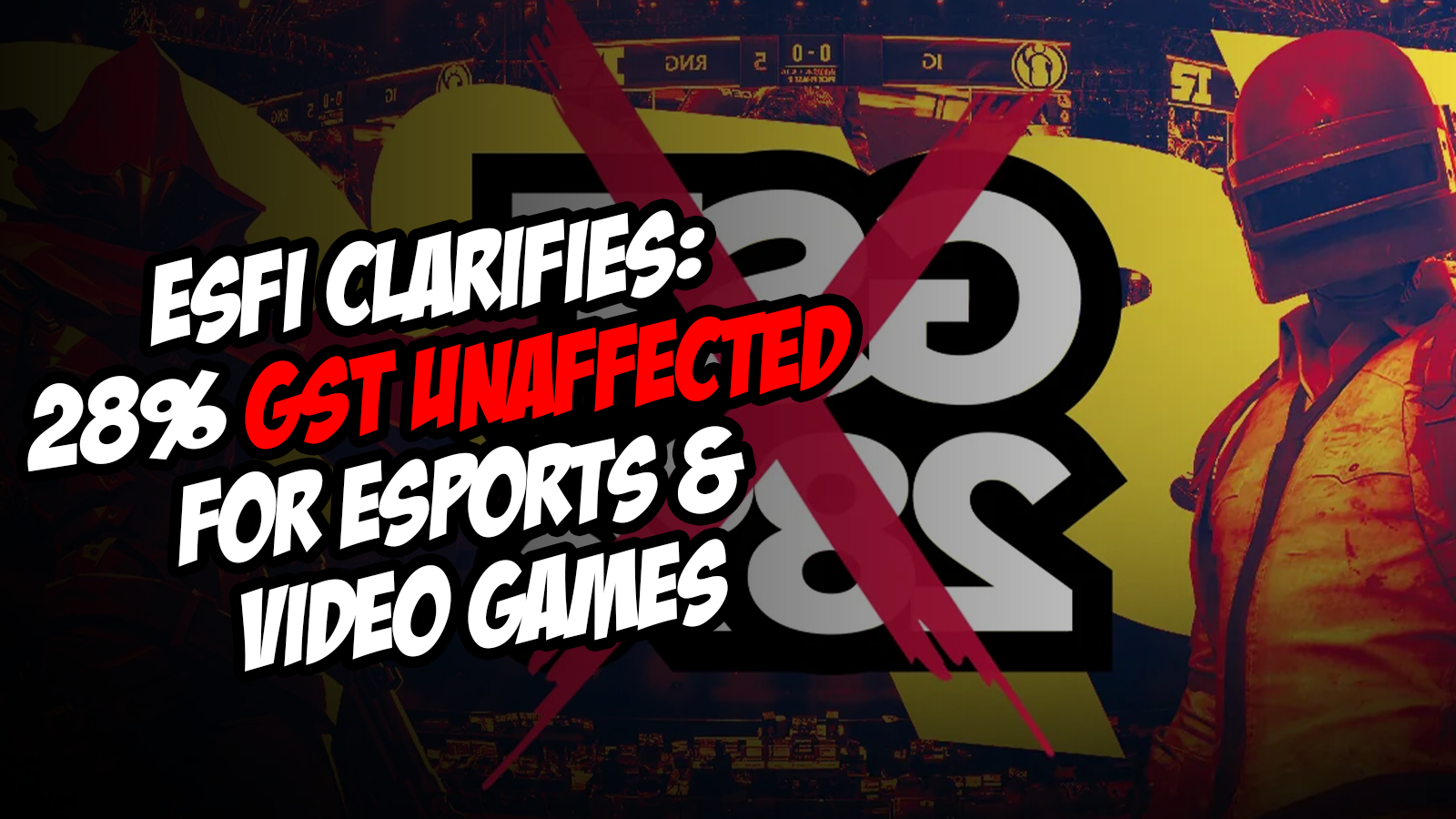ESFI Provides Clarity on 28% GST: Esports and Video Game Industry Unaffected
Learn about ESFI’s recent clarification on 28% GST and how it impacts the esports and video game industry. Discover why this decision leaves the industry unaffected and what it means for the future.
Introduction
The Esports Federation of India (ESFI) has recently provided a much-needed clarification on the implementation of a 28% Goods and Services Tax (GST) on esports and video games. This development has sparked concern and curiosity among enthusiasts and industry stakeholders alike. In this comprehensive article, we will delve into ESFI’s statement and explore how it impacts the thriving world of esports and the video game industry. With first-hand insights and credible sources, we aim to shed light on the implications and reasons behind the decision while assuring readers that the industry remains resilient. Let’s dive in and uncover the details behind ESFI’s clarity on 28% GST and its minimal impact on the esports and video game landscape.
ESFI Provides Clarity on 28% GST: A Breakdown
In this section, we will provide a detailed breakdown of ESFI’s clarity on the 28% GST, explaining its implications and reassuring enthusiasts and businesses alike.
1. Understanding the 28% GST: What it Means for Esports and Video Games
The 28% GST rate applies to various goods and services, and its inclusion in the esports and video game sector might raise concerns. However, it’s essential to recognize that GST primarily targets luxury and non-essential
goods. Esports and video games, being forms of entertainment and not necessities, fall under this category. Nevertheless, the impact is expected to be minimal as the industry has already been accustomed to dealing with taxation.
2. ESFI’s Clarity: The Industry Remains Unaffected
ESFI’s clarification has emphasised that despite the 28% GST, the esports and video game industry will continue to thrive. The key reason behind this assurance is the significant growth and resilience demonstrated by the industry in recent years. Additionally, the ESFI is actively working with relevant authorities to ensure fair taxation practices that don’t hinder the industry’s development.
3. Growth Prospects: Positive Outlook for the Future
The esports and video game industry have experienced exponential growth, both in terms of revenue and viewership. With a global audience and increasing interest from investors, the industry’s potential remains promising. ESFI’s reassurance on the GST matter further strengthens the industry’s foundation, providing a conducive environment for more growth in the future.
4. Collaboration with Authorities: Navigating Taxation Challenges
ESFI’s collaboration with government authorities showcases the industry’s willingness to comply with taxation regulations. By engaging in constructive dialogue and offering valuable insights, the esports and video game sector
aims to establish transparent and fair taxation policies that benefit all stakeholders.
5. Impact on Businesses: Adapting to the New Norm
While some businesses within the esports and video game industry may experience minor adjustments, ESFI’s clarity on GST will help them adapt and streamline their operations accordingly. The industry’s resilience and innovative spirit enable businesses to find creative solutions and continue providing top-notch gaming experiences to consumers.
Conclusion
ESFI’s recent clarity on the 28% GST has brought relief to the esports and video game industry. As we explored in this article, the impact of the taxation remains minimal, given the industry’s robust growth and adaptability. ESFI’s commitment to advocating for fair taxation practices and fostering a player-centric environment ensures that the industry continues to flourish. By collaborating with authorities and actively engaging with the gaming community, ESFI plays a pivotal role in shaping the future of esports and video games in India.
